 'Jin' named the word of the year by cross-strait netizens
'Jin' named the word of the year by cross-strait netizens Chinese scientific expedition goes to build new Antarctica station
Chinese scientific expedition goes to build new Antarctica station
 Chinese naval escort fleet conducts replenishment in Indian Ocean
Chinese naval escort fleet conducts replenishment in Indian Ocean 17th joint patrol of Mekong River to start
17th joint patrol of Mekong River to start China's moon rover, lander photograph each other
China's moon rover, lander photograph each other Teaming up against polluters
Teaming up against polluters
HISTORICAL CHANGES
In Shaoshan, Hunan province, the birthplace of Mao, local farmers have taken advantage of the admiration for Mao to make a living.
The locals sell Mao-themed souvenirs, including badges and bronze sculptures, and run family hotels and restaurants that host millions of visitors each year.
During the Cultural Revolution (1966-1976), private businesses were targets of crackdowns and restrictions. Even in the early 1980s, it wasn't easy to start a private business, said Mao Yu, the Communist Party chief in the village of Shaoshan.
At that time, people still widely believed that running a private business was equal to defaming Chairman Mao, and an old villager even cried two days before the statue of Mao in response to the reappearance of small private businesses, Mao Yu said.
Decades of reform and opening up have fundamentally transformed the thinking of Mao's fellow villagers, and they are now operating Mao-themed restaurants and hotels to cash in on the admiration for the former leader.
Reform and opening up have brought about economic miracles nationwide. China's per capita gross domestic product was less than 200 U.S. dollars in 1978, one-third of the level in Sub-Saharan Africa at the time.
Now China has become the world's second-largest economy and joined the ranks of middle-income countries, with per capita GDP exceeding 6,000 U.S. dollars.
The market economy and emancipation of minds have resulted in a massive human migration. Over 200 million rural residents have moved to work in the eastern coastal manufacturing centers and other cities to seek fortune. A further, wide-ranging opening up has also brought growth opportunities to the western inland areas.


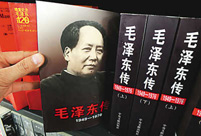 Commemorate 120th birth anniversary of Mao Zedong
Commemorate 120th birth anniversary of Mao Zedong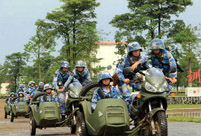 Female soldiers of PLA Marine Corps in training
Female soldiers of PLA Marine Corps in training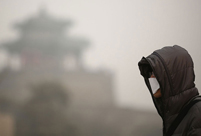 Chinese cities to have a very grey Christmas as smog persists
Chinese cities to have a very grey Christmas as smog persists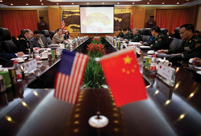 China and U.S. - the national image in each other’s eyes
China and U.S. - the national image in each other’s eyes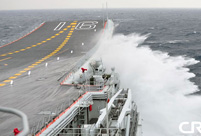 The Liaoning's combat capability tested in sea trial
The Liaoning's combat capability tested in sea trial Chinese pole dancing team show their moves in snow
Chinese pole dancing team show their moves in snow Rime scenery in Mount Huangshan
Rime scenery in Mount Huangshan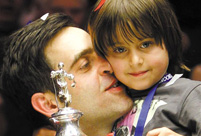 Ronnie O'Sullivan: My children mean the world to me
Ronnie O'Sullivan: My children mean the world to me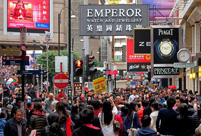 Shopping in Hong Kong: a different picture
Shopping in Hong Kong: a different picture SWAT conducts anti-terror raid drill
SWAT conducts anti-terror raid drill AK-47 inventor dies at 94
AK-47 inventor dies at 94 Mother practices Taiji with her son
Mother practices Taiji with her son  Crashed French helicopter salvaged
Crashed French helicopter salvaged Winter travels in Anhui
Winter travels in Anhui  Bird show opens to public in Calcutta, India
Bird show opens to public in Calcutta, IndiaDay|Week|Month